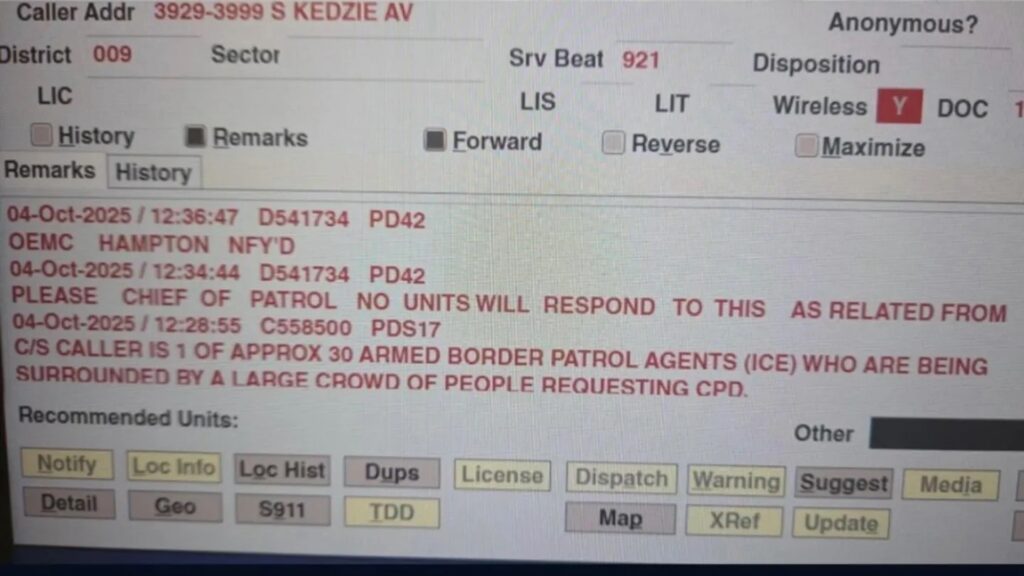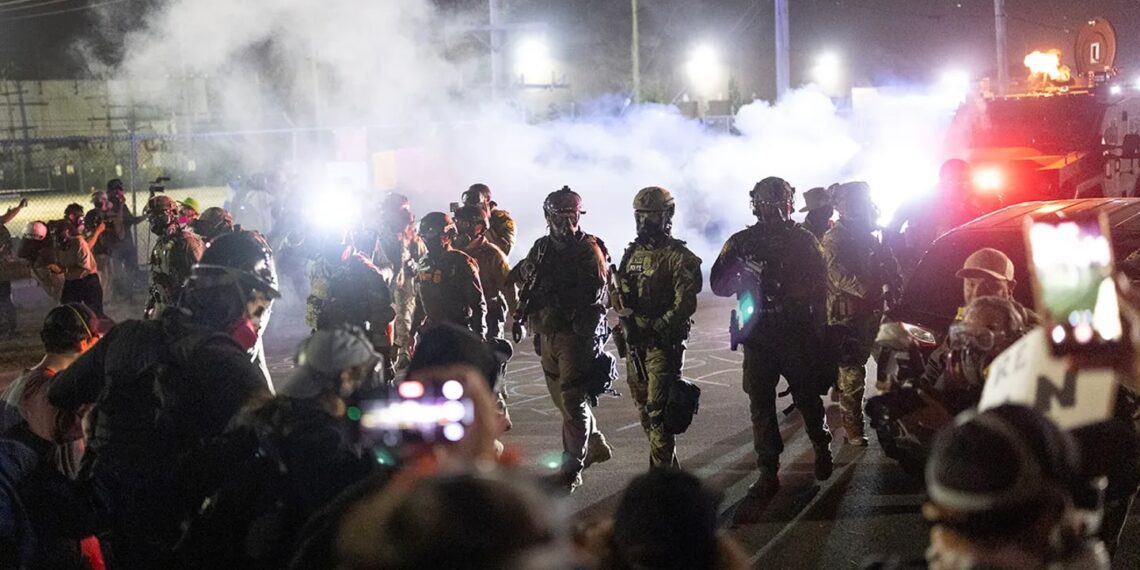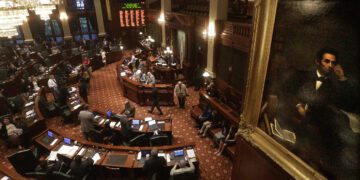By Illinois Review
An alarming situation unfolded in Chicago on Saturday when police officers were reportedly ordered to “stand down” and not assist a federal Immigration and Customs Enforcement (ICE) agent who was surrounded and in distress in the city’s Brighton Park neighborhood.
The shocking directive, allegedly issued by a Chicago Police Department (CPD) commander, has sparked widespread outrage among law enforcement advocates and legal experts, who say the order may violate both state and federal laws.
According to multiple sources and radio transmissions obtained by CWB Chicago, the confrontation began late Saturday morning near South Kedzie and 39th Place when federal agents encountered a hostile crowd. One ICE agent called for backup, warning that he was being surrounded. But instead of authorizing assistance, CPD leadership reportedly ordered city officers to withdraw from the area altogether.
Dispatch recordings reveal confusion among responding officers. “They were saying that they were being surrounded… we’re not sending?” one dispatcher asked. A supervisor confirmed the order: “Again, those are the orders we’re being given.” Another transmission reportedly stated, “Per the Chief of Patrol, all CPD resources are clear from the scene.”
This decision meant Chicago officers knowingly left a federal law enforcement officer in danger – an act that legal experts say could have serious consequences under Illinois and federal law.

Illinois statute 720 ILCS 5/7-15 makes clear that every law enforcement officer has a legal duty to determine whether a person is injured and render aid as soon as reasonably practical. While this statute often applies to civilians, its language covers any person in distress – including another officer. A deliberate decision to ignore an officer in danger could be considered a clear violation of this law.
The state also recognizes an officer’s duty to intervene to prevent or stop unconstitutional conduct or imminent harm. A “stand down” order, while not a direct act of violence, can enable harm through deliberate inaction.
Legal experts note that both the supervisor who issued the order and any officer who obeyed it could face state-level charges such as official misconduct or reckless conduct, depending on what harm occurred.
Federal law provides additional grounds for liability. Under the Civil Rights Act, 42 U.S.C. § 1983, a federal agent denied aid could file suit against those who acted “under color of law” to deprive him of his constitutional rights. A supervisor who knowingly abandons an officer could be held liable for “deliberate indifference,” and officers who comply with an unlawful order may also share responsibility. Criminal exposure could extend further under 18 U.S.C. §§ 241 and 242 – federal statutes that prohibit conspiracy or deprivation of rights under color of law.
Prosecutors would only need to show that the decision was made with willful disregard for the endangered officer’s safety.
Beyond the legal implications, the incident has reignited political tension in Chicago over cooperation with federal law enforcement. Mayor Brandon Johnson, who has an approval rating of just 6 percent, has repeatedly criticized ICE operations and, in August, signed an executive order barring Chicago police from assisting federal immigration enforcement efforts.
At the time, Johnson claimed the policy would “protect” immigrant families. But critics say Saturday’s events show how such ideological directives can have dangerous, real-world consequences.
Law enforcement unions and conservative leaders are now demanding a full investigation. They argue that radio transmissions, internal memos, and command communications must be released immediately to determine who gave the order and why. Federal authorities may also step in if it is found that CPD’s actions interfered with a federal operation or placed a federal officer in danger.
The situation underscores a growing divide in Chicago between city leadership and law enforcement. While Democrats in City Hall focus on “sanctuary” politics, the men and women tasked with enforcing the law are left to navigate impossible orders that put their careers – and their lives – on the line.
The law is clear: every officer, regardless of rank or jurisdiction, has a duty to protect life. The moral obligation is even clearer. When a federal agent calls for help, politics must never dictate whether that call is answered.









